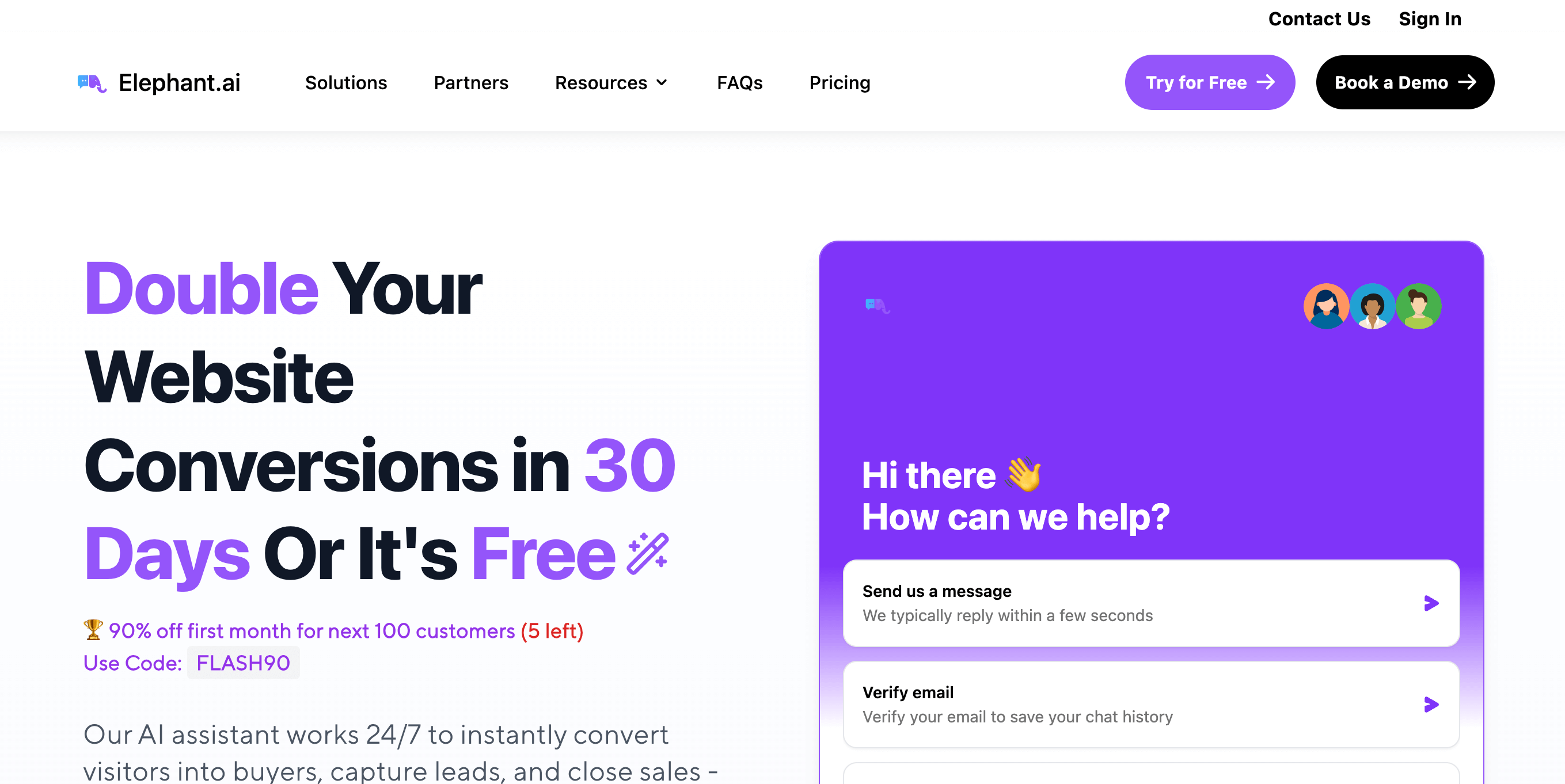Elephant creates custom chatbots powered by ChatGPT, using your website's data to offer accurate, personalized responses and improve user engagement 24/7.

| Pricing Package Name | Price |
|---|---|
| Basic | $19/month |
| Starter | $49/month |
| Pro | $99/month |
| Business | $399/month |
Data source support is a key feature to consider when evaluating Elephant.ai. It determines the types of documents or data formats the chatbot can read and pull information from to respond accurately to user queries. Whether Elephant.ai supports integrations with websites, PDFs, CSV files, or even proprietary databases can significantly impact its usefulness. By having robust Data Source Support, Elephant.ai becomes more versatile and able to provide more relevant, context-driven responses, making it an essential consideration for businesses looking to maximize their AI chatbot’s capabilities.
Below is a list of data sources Elephant.ai currently support:
 Website
Website
 PDF
PDF
 Text
Text
 Word Document
Word Document
Integration capabilities are a key feature of Elephant.ai. By supporting integration with various platforms, Elephant.ai helps streamline workflows and improve overall efficiency. Whether it connects with your existing systems or offers custom integration options, this flexibility allows businesses to automate processes, enhance customer interactions, and seamlessly fit the chatbot into their operations for a smoother experience.
Below is a list of integrations Elephant.ai currently support:
 Slack
Slack
 Zapier
Zapier
 Intercom
Intercom
 Facebook Messenger
Facebook Messenger
LLM (Large Language Model) Support is an important factor when choosing Elephant.ai. It refers to the AI models that Elephant.ai is built on or integrates with to generate natural, human-like responses. The types of LLM models Elephant.ai supports, such as GPT-4, Claude, or other specialized models, influence its accuracy, language understanding, and ability to handle complex queries. With strong LLM support, Elephant.ai can better interpret user intent, deliver more nuanced answers, and provide a smoother conversational experience.
Below is a list of LLM AI models Elephant.ai currently support:
 GPT-3
GPT-3
 GPT-3.5
GPT-3.5
 GPT-4
GPT-4
| Pros | Cons |
|---|---|
| Boosts user engagement | Learning curve for advanced features |
| Increases revenue through engagement | Some features are restricted to higher plans |
| Improves content discovery on sites | Language limitations for nuanced responses |
| Offers SEO benefits through interaction |